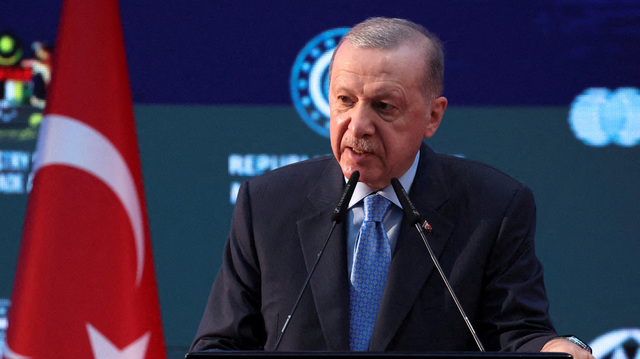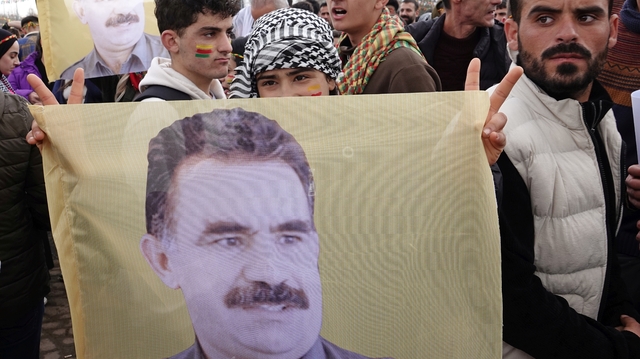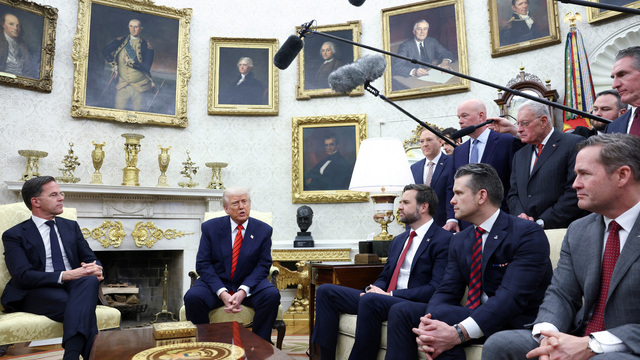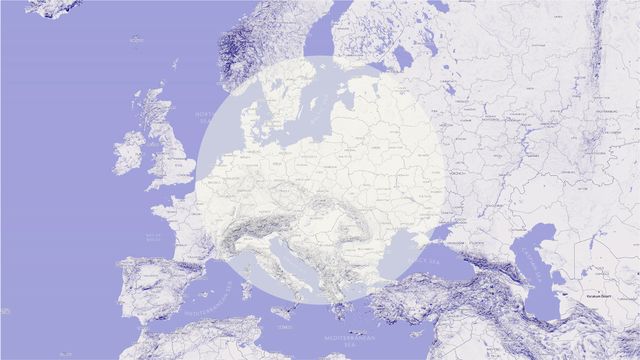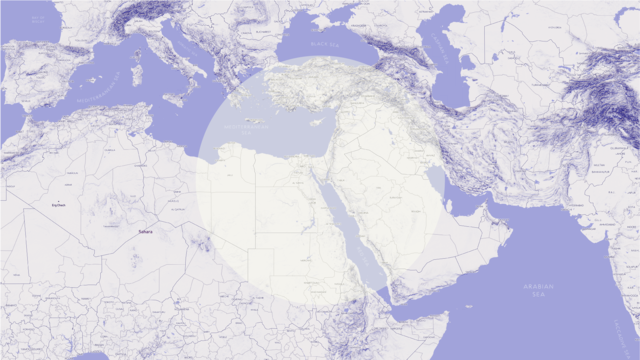The Abraham Accords: A Gamechanger for the Region and Europe’s Role in It?
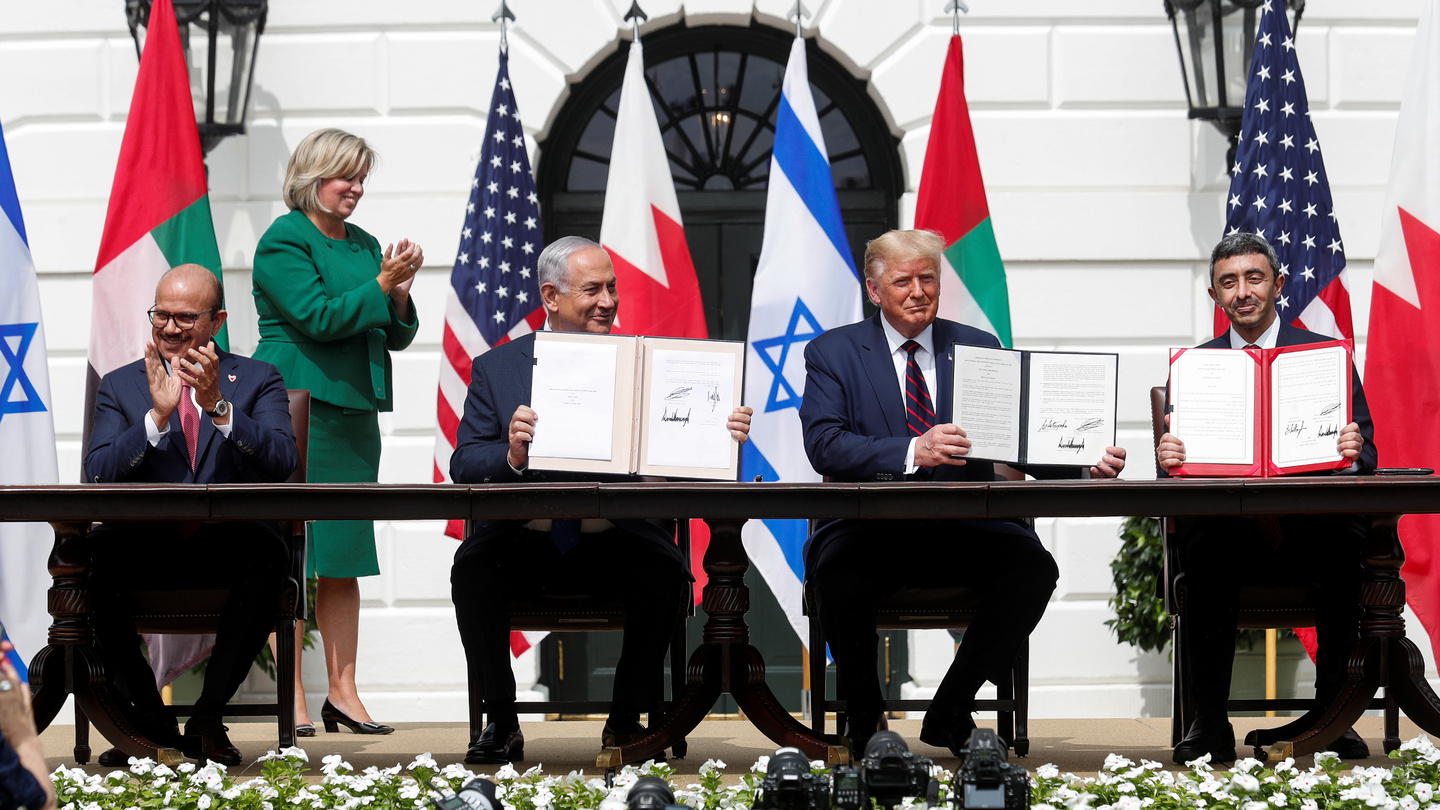
paper
The normalization agreements, known as the Abraham Accords, that were signed between Israel and the United Arab Emirates, Bahrain, Morocco and Sudan in 2020, have the potential to strengthen economic integration while also fostering wider regional security partnerships. The deepening of regional ties could pave the way for broader cooperation propelling joint efforts in addressing issues such as energy security and climate change. The normalization agreements present new opportunities for cooperation not only for the region but also beyond it, including for the European Union.
Yet the Abraham Accords are facing a number of challenges which could constrain the expansion of the normalization process. There is a disparity in how the political elites and the broader Arab public view the Abraham Accords. Furthermore, the new Israeli government led by prime minister Binyamin Netanyahu includes several members that hold extreme positions on issues such as the Palestinian question and the status of holy sites in Jerusalem. The new government is liable to take actions that could heighten
regional tensions and damage the normalization process. The Abraham Accords are popular in Israel. The UAE, Bahrain, Morocco and Sudan and other countries in the region have a unique opportunity to influence the new Netanyahu government and the wider Israeli public by linking progress on normalization to Israel stopping harmful policies that damage the long-term prospects of peace with the Palestinians. The EU has expressed measured support for the Abraham Accords, but it should actively encourage these states and potential new signatories to the accords to condition progress on Israel stopping counter-productive policies which could lead to a serious escalation in the region.
Introduction
Since Israel was established in 1948, almost all Arab states have been unwilling to recognize its existence. A longstanding assumption about the Arab-Israel conflict was that Israel would not enjoy a normalization with the Arab countries until its conflict with the Palestinians was resolved. This received wisdom was seemingly upended when in 2020 Israel signed normalization agreements with the United Arab Emirates and Bahrain and established diplomatic relations with both countries. The Abraham Accords, as the agreements became known, are likely to strengthen economic integration in the region and foster wider cooperation between some of the Muslim majority MENA countries and the State of Israel. Morocco and Sudan signed normalization agreements with Israel not long after the UAE and Bahrain had done so. Numerous high level visits have taken place between Israel and the signatories to the accords. While Israel’s peace deals with Egypt and Jordan produced a ‘cold peace’, the Abraham Accords have the potential to develop deeper partnerships in the realms of defence, energy, trade, agriculture and tourism.
However, there is a danger that the Abraham Accords could experience setbacks as a result of the composition of the new Netanyahu government, which includes several members that hold extreme positions on the Palestinian question and the status of holy sites in Jerusalem. Even so, the EU is facing a new reality in the region which it must work with as a result of the Abraham Accords. The normalization agreements present new opportunities for cooperation not only for the region but also beyond it, including for the EU.
The first section of this paper will discuss the likely implications of the Abraham Accords for the Middle East, including the opportunities for regional cooperation and partnerships in the security sphere, while also highlighting the constraints on the normalization process. The second section of the paper will analyse the likely impact of the Abraham Accords on the EU, including its relations with Israel. The final section will present recommendations for the Czech Republic and the EU more broadly so that they can better harness the Abraham Accords as a means to advance objectives in a variety of areas, including security, energy and
trade.
The Impact of the Abraham Accords on the Region
As well as encouraging closer economic and political relations between Israel and a number of Arab states, the Abraham Accords have helped to strengthen regional security cooperation. This section will discuss the growing defence cooperation between Israel and those Arab states that have signed normalization agreements with it, as well as other countries that share its concerns over the threat from Iran.
In June 2022, Jordanian King Abdullah II surprised many when he remarked that he would support the establishment of a military alliance in the Middle East similar to NATO. U.S. President Joe Biden, during his visit to the Middle East earlier in the summer, affirmed his commitment to “advancing a more integrated and regionally-networked air and missile defence architecture and countering the proliferation of unmanned aerial systems and missiles to non-state actors that threaten the peace and security of the region.” Israel’s defence establishment is claiming that the de-facto partnership between Israel and several Gulf Arab countries has already been activated successfully against aerial threats from Iran.
The ongoing tensions between these Arab states and Iran have been a key driver in their security cooperation with Israel, which is the strongest military power in the region. Israel has shown its determination to confront Iran’s heightened military presence in the region, notably in Syria. This serves the interests of Bahrain and the UAE, which share Israeli concerns over the threat posed by Iran. Abu Dhabi’s interest in normalizing its relations with Israel has also stemmed from the perceived benefits of cooperation in the sphere of cyber security. Bahrain hosts the US Navy’s 5th Fleet, which makes it an important player in the growing security cooperation between Israel and the Arab states. Moreover, a short time after the Abraham Accords were signed, Israel was added to the responsibilities of the US Central Command (CENTCOM). This has led to significant breakthroughs such as Israel’s participation in a November 2021 CENTCOM exercise that included the UAE and Bahraini navies and that will allow Israeli and Arab officers to foster relationships at staff colleges and regional military bases.
Alongside the significant advancement of its nuclear programme, Iran possesses the largest and most sophisticated missile arsenal in the region. Bahrain would be vulnerable to an Iranian strike on strategic targets in the Kingdom involving ballistic and cruise missiles as well as drones. Iran has made it clear that it perceives the cooperation between Israel and Bahrain and the Gulf states more widely as a direct threat to its security interests. The United States withdrew its missile defences from Saudi Arabia and other countries in the Middle East in the summer of 2021 as it strengthened its focus on threats from China and Russia. This raised questions about the reliability of the United States as an ally. Iran’s heightened missile and drone activity in the region, including its support for strikes carried out by the Yemen-based Houthis, as well as its military support for the Russian attacks in Ukraine, has provided a more promising environment for the development of an integrated air defence alliance which would include Israel. However, it could take years until political conditions ripen and trust grows sufficiently for a fully integrated defence system to emerge.
The normalization agreements significantly boosted Israel’s arms exports to the region. Over the past year, arms sales to the countries of the Persian Gulf have accounted for roughly 7 per cent of its global military exports. Israel has sold advanced Barak and Spyder air defence systems to the UAE. However, this security cooperation extends beyond the Gulf region. Israel and Morocco have also established burgeoning security ties. Israel sold Morocco the Barak MX missile defence system as well as cyberware. Morocco’s signing of a normalization deal with Israel was a major factor in the deterioration of its ties with its neighbour Algeria because the United States recognized Moroccan sovereignty over Western Sahara as part of the agreement. Algeria broke off diplomatic ties with Morocco in August 2021.
Furthermore, Israel’s cutting-edge technologies, advanced military systems and highly developed cyberware capabilities are a major source of attraction for countries such as the UAE and Morocco. From Israel’s perspective, its security cooperation with the Arab states underpins the shared objective of pushing back against Iran’s growing influence in the region. Yet it also has tangible economic benefits.
It is in the economic arena where the Abraham Accords have arguably the greatest potential to transform the region. The volume of Israeli-Emirati trade exceeded $1 billion in 2021, up from $180 million in 2020. At about 0.2 per cent of GDP, this is far less than the trade Israel enjoys with the EU and Turkey but considerably more than Israel’s trade with Egypt and Jordan, in spite of the peace agreements that were signed with these two countries decades ago. Bilateral trade between Israel and the UAE is expected to grow by as much as $6.5 billion within a decade as a result of the Abraham Accords. Israel and the UAE signed a free trade agreement in May 2022, the first agreement of this kind that Israel signed with an Arab state. The Emirati trade minister Thani Al Zeyoudi said the deal had written “a new chapter in the history of the Middle East.” A RAND study suggests that plurilateral free trade among all the signatories to the Abraham Accords would increase GDP by 2–3 per cent in each country.
The Constraints and Limits on The Normalization Process
However, the normalization process faces several challenges. The elites in Gulf states such as the UAE and Bahrain are generally supportive of the normalization with Israel, but a majority of the public are less satisfied. Polling conducted by the Washington Institute in March 2022 demonstrated that there has been a fall in public support for the Abraham Accords in Saudi Arabia, Bahrain and the UAE, with only a small minority viewing the normalization deals in a positive light. There are indications that popular Arab support for the Abraham Accords is declining because of the absence of progress on the Palestinian track. This coolness towards Israel has been on public display during the FIFA 2022 World Cup in Qatar. There is clearly a divergence between the ways in which the political elites and the broader Arab public view the Abraham Accords. During the World Cup, Morocco’s jubilant footballers waved the Palestinian flag in front of the cameras, attesting to the enduring strong public support in much of the Arab world for the Palestinian cause.
There are no strong grounds for optimism in regard to the ability of the Abraham Accords to advance peace between Israel and the Palestinians. There is little sign of Israel or the Gulf states prioritizing efforts to promote any kind of dialogue with the Palestinians. Indeed, the Palestinian leadership views the Abraham Accords as a betrayal. The Arab countries that signed normalization deals with Israel were motivated by shared concerns over Iran, commercial opportunities and economic self-interest as opposed to a desire to resolve the conflict with the Palestinians. Sudan was motivated by the promise of American aid and its removal from the US list of ʻstate sponsors of terrorismʼ. Morocco was driven by the Trump administration’s readiness to recognize its sovereignty over Western Sahara. Furthermore, the relations between the UAE and the Palestinian leadership, which were already poor before the signing of the Abraham Accords, deteriorated further. However, in recent months, there have been signs of an easing of tensions between the two sides.
A serious escalation between Israel and the Palestinians could lead to public pressure on Arab governments to stop the normalization process. Nevertheless, both Egypt and Jordan’s peace treaties with Israel have prevailed in spite of strong public opposition to their relations with Israel. The normalization agreements withstood the violent clashes between Israel and Hamas in Gaza in May 2021. Yet there is a growing crisis between Israel and the Palestinians that will have an impact on the wider region. There are radical elements within Israel’s new government advocating a loosening of the rules on the use of force against Palestinians. They also seek to change the status quo by approving Jewish prayer on the Noble Sanctuary/Temple Mount. The United Arab Emirates has already called for a UN Security Council meeting to condemn the visit of Israel’s national security minister, Itamar Ben Gvir, to Temple Mount. Even if the normalization endures amid public opposition, adverse domestic and regional developments will create crises in relations that will require attention and diplomatic agility.
The new Israeli prime minister Binyamin Netanyahu has spoken of his interest in achieving a normalization of relations with Saudi Arabia, although such a development is unlikely in the near future. Since Mohammed bin Salman assumed his role as crown prince, there has been a slow and incremental change in regard to the country’s relations with Israel. During President Biden’s visit to Saudi Arabia, the Kingdom lifted the restrictions on Israeli commercial flights and other airlines serving Israel, allowing Israeli planes to fly through its airspace. Saudi Arabia has stated explicitly that it will not agree to normalization with Israel until a settlement is reached with the Palestinians. In March 2022, bin Salman said that Israel was a potential ally, but it first had to resolve the conflict with the Palestinians. However, in spite of the rhetoric, as long as there is no significant escalation in the West Bank, the absence of progress between Israel and the Palestinians may not necessarily be a dealbreaker for the Saudis. Nevertheless, according to opinion polls, around 80 per cent of Saudi citizens are opposed to normalization with Israel. Moreover, as custodians of the holy places of Islam, the Saudis are unable to ignore the sensitivities of Muslim public opinion when it comes to the idea of peace with Israel. The Saudis have been content to provide quiet support for the Abraham Accords without committing themselves to normalization with Israel.
Qatar is also unlikely to join the circle of peace with Israel in the near future, although for different reasons. Tensions remain between Doha and those Gulf states that joined the Abraham Accords or pledged support for the normalization process. Qatar’s active involvement in the Palestinian arena, including its close ties with Hamas, enables it to play an influential role in the region. However, this has exacerbated the rivalry between Qatar and other Gulf states such as Saudi Arabia and the UAE. Qatar has in recent years maintained a dialogue with Israel over aid to Gaza, with the previous Netanyahu government approving Qatarʼs transfer of hundreds of millions of dollars to Hamas as part of efforts to prevent violence. While history was made in November 2022 with the first direct commercial flights between Israel and Qatar for Israelis travelling to the World Cup, Qatar has made it clear that there has been no change to its position on normalization. The Emir of Qatar, Sheikh Tamim bin Hamad Al Thani, stated in February 2022 that Qatar continues its “working relationship” with Israel to help the Palestinian people, but that it could not anticipate joining the Abraham Accords “in the absence of a real commitment to a two-state solution.” Qatar has also nurtured close relations with Iran, which also affects its attitude towards the Abraham Accords. These forces are likely to place constraints on a significant expansion of the normalization process.
Furthermore, in spite of the closer security ties between Israel and the Gulf states, a degree of realism is warranted: there are significant differences in the ways the various countries approach the challenge of Iran. Israel views Iran as a mortal enemy that seeks its destruction. The Gulf states, while concerned by Iran’s destabilizing activity, seek dialogue rather than confrontation. Saudi Arabia has also held talks with Iran in order to reduce tensions. Countries such as the United Arab Emirates may be wary of incurring the Iranians’ wrath through open military cooperation with the Israelis in missile defence. Moreover, closer security cooperation, such as an integrated air defence system in the Middle East, would require the sharing of sensitive intelligence between countries that were recently still adversaries.
The Promising Areas of Regional Cooperation
Nevertheless, the cooperation is going forward in several less sensitive areas. Israel and its co-signatories to the Abraham Accords value the extensive evolving cooperation in areas such as trade, energy, agriculture, water desalination, transportation and tourism. The development of regional ties could pave the way for more extensive cooperation which could facilitate joint efforts in tackling issues such as energy security, climate change and resource scarcity.
A prime example of the cooperation driven by the Abraham Accords is the trilateral agreement between Israel, Jordan and the UAE which will see a solar energy plant established in Jordan. The plant will be funded and administered by Masdar, a government-owned company based in the UAE. At the same time, Israel will construct a desalination facility for the transfer of water to Jordan. Israel will purchase solar power from the Jordanian plant while the Jordanians purchase water from the Israeli desalination facility. Europe itself can play a significant role in strengthening the cooperation between Israel, a leading innovator in renewable energy, and other Arab countries in the field, which will enhance regional stability and help in meeting Europe’s own energy needs.
With the Middle East peace process currently in limbo and little near-term prospect of progress in this area, an energy cooperation understanding between Israel and the Palestinians offers hope of at least creating a more conducive environment for dialogue. The Palestinians should be included as participants alongside Israel in the production of desalinated water that would be sold to Jordan. In turn, Jordan would sell renewable energy to both Israel and the Palestinians. A pre-feasibility study commissioned by the EcoPeace organization, the architect of the Israel-Jordan-UAE deal, and the Konrad Adenauer Foundation concluded that the concept would offer considerable economic, environmental and geopolitical advantages for all three parties, while encouraging longer-term cooperation. Israel would gain from the strengthened regional cooperation, Jordan’s water security difficulties would be addressed and the Palestinians would obtain more independence from Israel to meet water and energy needs at a time when they face a severe water crisis. The European Union would see advantages in inviting interested EU foreign ministers to facilitate a dialogue involving representatives from Israel, the Palestinians and the Jordanians in order to kick-start a partnership for regional energy and water cooperation. Nevertheless, bearing in mind the strong public opposition to the deal in Jordan, all the parties involved would have to show resolve in order to ensure that a regional cooperation initiative of this kind would succeed.
The war in Ukraine and the growing challenge of climate change have created a sense of urgency for expanding the cooperation between Europe and countries in the Middle East in renewable energy. Cooperation in the production of solar energy can help to build trust in the region and foster mutual dependencies. The Palestinians can join Israel and Jordan in becoming a hub for renewable energy, which would help Europe reduce its dependence on Russian gas.
In 2022, the EU expanded its energy cooperation with the Gulf Cooperation Council (GCC). During the visit of EU Commission President Ursula von der Leyen to Israel in June 2022, she spoke of the need for Europe to “break free” of Russian fossil fuels. Von der Leyen noted that the EU was exploring ways to strengthen its energy cooperation with Israel. The EU, Israel and Egypt signed a deal in June to expand gas exports to Europe. Later, in November 2022, an agreement was reached between the EU and Egypt on green hydrogen. Amid heightened concerns over the European dependency on Russian fossil fuels, there is scope for widening the cooperation, including within regional frameworks.
The Impact of The Abraham Accords on The Relations of The European Union With Israel
While the normalization process has the potential to bring about a positive impact on the EU’s relations with Israel, the lack of progress on the Palestinian issue will remain an obstacle to a significant improvement in the relationship. In this context, the EU-Israel Association Council dialogue was renewed on October 3 – the first meeting of its kind in ten years. The Association Council is the institutionalization of an annual dialogue between the EU and Israel at the level of foreign ministers.
Those countries in the EU that enjoy close relations with Israel will welcome the opportunity to relaunch the dialogue while some other EU member states will view the dialogue as an opportunity to keep the Palestinian issue on the agenda. The EU is concerned about the deteriorating situation of the Palestinians and remains committed to supporting the ailing two-state solution. It is noteworthy that the renewal of the EU-Israel Association Council dialogue was announced in spite of the lack of progress in the peace process.
In the recent past, the previous Netanyahu government took advantage of divisions within Europe to prevent an EU consensus on issues such as settlement expansion. Over the past year, however, the tone and atmospherics around the relationship between Israel and the EU have changed for the better. The Israeli governments headed by Naftali Bennett and Yair Lapid adopted a more conciliatory and constructive approach towards the EU, which helped to pave the way for the restoration of the Association Council dialogue. The relations between the EU and Israel were helped further by Lapid’s endorsement of the two-state solution at his UN General Assembly speech on 22 September.
However, the recent improvement in the ties between Israel and the EU may be short-lived. The new Netanyahu government includes radical politicians who are advocating the expansion of settlements, the approval of illegal settlement outposts and moves to annex the West Bank. In 2020, the EU threatened to take punitive measures against Israel in the wake of reported plans to take similar actions. At the same time, there will be some EU countries that may be more reluctant to take counter-measures against Israeli policies out of concern that this will alienate Israel.
Conclusion and Recommendations
As this paper has noted, the Palestinians feel betrayed by a normalization process that was advanced at their expense. Nevertheless, since the normalization process is moving forward, albeit at a slow pace, the Czech Republic and the EU as a whole have an interest in harnessing the Abraham Accords to promote cooperation between Israel, the Palestinians and Arab countries, which can also potentially help to defuse regional tensions. The EU has expressed measured support for the Abraham Accords, but it should tie the normalization process to progress in other areas – in particular, to progress on the Palestinian issue.
The signatories to the Abraham Accords have, to date, shown little interest in taking steps to improve the situation in the Israeli-Palestinian arena, and the EU can play an important role by encouraging Arab states to condition further normalization with Israel on it adopting a more flexible approach towards the Palestinians. The Abraham Accords are popular in Israel. The UAE, Bahrain, Morocco and Sudan have a unique opportunity to influence the new Netanyahu government and the wider Israeli public by making it clear that they have something to lose if Israel pursues harmful policies. Nevertheless, the signatories to the accords are unlikely to do so without strong leadership from the United States and Europe.
The normalization process also potentially opens new opportunities for the Czech Republic. Prague’s support for Israel has been a consistent element in its foreign policy over recent years. At the same time, Prague is also nurturing its ties with Gulf states, which was reflected in the successful visit of the then Czech foreign minister Jakub Kulhánek to Saudi Arabia in September 2021. Saudi Arabia, Qatar and the UAE are among the strongest trade partners of the Czech Republic in the region. There is strong potential for the development of trilateral cooperation to advance projects in fields such as trade and energy with the involvement of Czechia, Israel and the Gulf states.
RECOMMENDATIONS FOR THE EU
→ The EU should help to incentivize the signatories of the Abraham Accords through diplomatic and economic means to take greater initiative on the Palestinian issue. The EU could encourage other Arab countries that wish to join the normalization process to condition progress in this area on Israel stopping potentially harmful and counter-productive practices such as changing the status of the West Bank and legalizing settlement outposts. This would demonstrate to Palestinians that the Abraham Accords have the potential to improve the situation on the ground.
→ The EU should encourage the signatories to the Abraham Accords to advance economic opportunities that promote Palestinian economic development. It should also provide strong support for regional cooperation initiatives that include the Palestinians. Any tangible improvements on the ground in the Palestinian arena
that can be associated with the Abraham Accords could also potentially help in reducing Arab public opposition to the normalization process.
→ The EU will need to be mindful of its need to maintain and develop relations with countries in the region that remain outside of the Abraham Accords framework, such as Iraq, Qatar and Algeria. From this perspective, the EU will see a need to place limits on its support for the normalization process.
RECOMMENDATIONS FOR THE CZECH REPUBLIC
→ The Czech Republic should work with Israel and other partners in the Middle East to promote cooperation in the field of renewable energy, which would be beneficial both in terms of reducing tensions in the region and in terms of ultimately providing alternative energy sources for Europe. This can also be an area worth exploring for the Czech industry, both in the area of cooperation in research and development, and in the area of manufacturing expertise and capabilities.
→ The Czech Republic has worked with Israel in the area of cyber security. The Czech National Cyber and Information Security Agency and the Israel National Cyber Directorate have held a joint training session to test communications and their ability to respond to national cyber threats. The Abraham Accords provide an opportunity for this cooperation to be extended further to include states such as the UAE and Morocco, which place a high value on Israel’s cutting-edge cyber security expertise, which can benefit all the parties. This could be perceived also as an opportunity for Czech private cybersecurity companies.
→ The restarting of the EU-Israel Association Council dialogue is a welcome development. The EU will have an interest in maintaining communication channels with the new Israeli government. As one of Israel’s strongest allies within the EU, the Czech Republic is particularly well placed to express concerns over particular Israeli policies that could heighten regional tensions and damage the normalization process.
